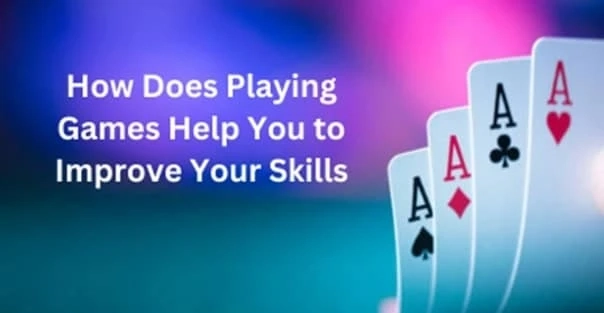Card games have been a source of entertainment and social interaction for centuries, but did you know they also serve as a playground for skill development? Beyond the thrill of winning, playing card games can hone various cognitive and social skills. In this article, we\'ll explore the diverse skills that can be improved when you engage in the world of card games, turning each shuffle and deal into an opportunity for personal growth.
1. Strategic Thinking and Planning:
Card games often require strategic thinking and planning. Whether it\'s calculating probabilities, anticipating opponents\' moves, or deciding when to play certain cards, engaging in strategic gameplay sharpens your ability to plan ahead and make thoughtful decisions.
2. Critical Decision-Making:
Card games, especially those involving betting or trick-taking, demand critical decision-making. Evaluating the cards in your hand, assessing the game situation, and deciding on the best course of action contribute to honing your decision-making skills, a valuable asset in various aspects of life.
3. Memory Enhancement:
Successful card playing relies on remembering which cards have been played, predicting potential moves, and recalling strategies. Regular engagement in card games enhances your memory, helping you become more adept at retaining and retrieving information.
4. Concentration and Focus:
Playing card games requires sustained concentration and focus. Keeping track of the game\'s progress, analyzing opponents\' moves, and staying vigilant to changes in the playing field all contribute to improved concentration skills, a transferable skill to many areas of life.
5. Emotional Control and Patience:
Card games often involve an element of chance, and dealing with wins and losses requires emotional control and patience. Learning to manage frustration, excitement, and disappointment in a controlled manner during gameplay contributes to emotional intelligence and resilience.
6. Social Skills and Communication:
Many card games are inherently social, requiring communication and interaction with fellow players. Engaging in card games nurtures social skills, such as effective communication, teamwork, and understanding non-verbal cues, which are valuable in various social settings.
7. Quick Calculations and Math Skills:
Some card games involve quick calculations and basic math skills. From counting points to calculating odds, engaging in card games provides a fun way to sharpen your math skills without the need for a calculator.
8. Adaptability and Flexibility:
Card games often involve adapting to changing circumstances. Being flexible in your strategies, adjusting to opponents\' moves, and navigating unexpected twists in the game contribute to the development of adaptability and flexibility.
9. Pattern Recognition:
Recognizing patterns in card games is a key skill. Whether it\'s identifying sequences, sets, or anticipating opponents\' patterns, engaging in card games enhances your ability to recognize and respond to patterns in different contexts.
10. Stress Reduction and Relaxation:
Engaging in card games can be a relaxing and enjoyable activity, providing a break from daily stressors. Taking time to play card games promotes stress reduction and relaxation, contributing to overall well-being.
SEO Optimization Tips:
Targeted Keywords:
Utilize relevant keywords such as "improving skills through card games," "benefits of playing card games," and "skills enhanced by card playing" to enhance the article\'s search engine optimization.
Headers and Subheadings:
Use clear headers and subheadings to organize the content, making it easy for readers and search engines to understand the structure of the article.
Natural Language:
Maintain a conversational and informative tone, using natural language to make the content engaging and reader-friendly.
Quality Content:
Craft a comprehensive and insightful article that not only highlights the skills improved through card games but also provides practical tips, game recommendations, and strategies for readers to enhance these skills.
Conclusion:
Next time you engage in a card game, recognize it as more than just a pastime – it\'s a skill-building exercise. From strategic thinking to social skills, card games offer a diverse array of benefits that extend beyond the gaming table. Embrace the opportunity to enhance your cognitive, emotional, and social skills while enjoying the timeless appeal of card games.



